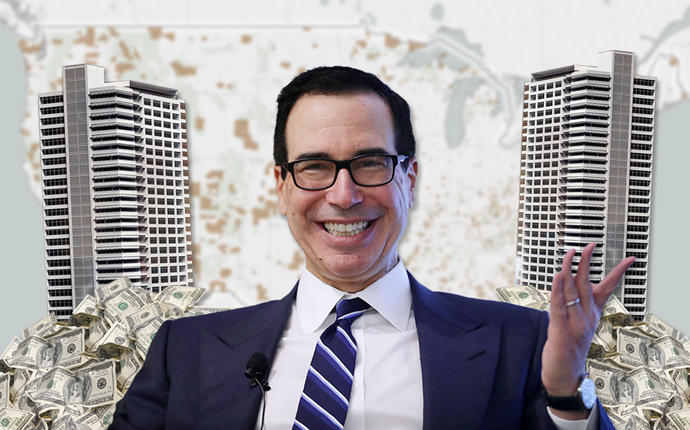Trending
No more excuses: New Opp Zone rules should open the door to big money
Changes to the program include longer runway to complete a project, tax breaks on Brownfield sites and vacant lots

Despite being hyped the Next Big Thing in real estate, investor interest in Opportunity Zones hasn’t materialized as fund managers, developers and government officials had hoped.
But on Thursday, the IRS and Treasury released the final set of regulations for the federal program, providing investors and developers more certainty over the rules and regulations that govern how real estate money can be deployed into the 8,700 areas across the country. At minimum, the real estate world can no longer blame government inaction as the reason for not investing in the program.
The new regulations, spelled out in a 544-page document, ultimately provide more flexibility to real estate investors, developers and funds, according to Steve Glickman, Develop LLC founder who helped create the Opportunity Zone program. The new rules will provide large investment funds the clarity they need to finally feel comfortable investing in the program, he said.
The new regulations “provide more flexibility for when [funds] have to deploy capital, more flexibility for how much those funds have to invest in assets, and they provide more flexibility for how governments can use leases in order to put public assets to better use,” said Glickman.
The federal Opportunity Zone program gives developers and investors the ability to defer or potentially forgo paying capital gains taxes if they invest in a designated Opportunity Zone. The first regulations were released in October 2018 and the second set of rules was released in April. Investors and developers have to deploy capital by the end of the year to claim the biggest tax benefit.
The Opportunity Zone program was the most talked about play in real estate last year, but expectations and hype has cooled down due to some of the challenges of finding attractive properties to develop in the designated zones.
Many funds have had trouble raising capital. Of a sampling of 103 Opportunity Zone Funds that sought to raise $22.7 billion so far they raised only $3 billion, according to a recent report by accounting firm Novogradac & Co.
Then there’s Anthony Scaramucci’s SkyBridge Capital, which first sought to raise $3 billion, but is now seeking just $300 million.
More favorable rules for real estate investors
The new rule changes should help alleviate the uncertainty that caused big investment funds to back away from the program.
One benefit is that the new rules allow investors, developers and fund managers more time to complete an Opportunity Zone project, according to Glickman. Under the initial proposed regulations, an Opportunity Zone project had to be completed in 31 months from when the money was first invested in a project. The new rules give a developer 62 months to complete an Opportunity Zone project. This is crucial for real estate developers, since permitting and entitlements can be complicated and projects can take years before getting off the ground.
Another benefit under the new rules is for developers building on Brownfield sites and vacant lots in Opportunity Zones. Under the regulations, developers can more easily qualify for the tax benefits if they build on these properties.
If a developer is building in a Brownfield site in an Opportunity Zone, the project will count as an “original use” property as opposed to a property that needs to be substantially improved. This means that a developer only needs to build on the site in order to qualify for the tax benefits rather than doubling the value of the property.
The regulations were released a time when the program has come under increased scrutiny and criticism as a tax break for the rich.
News outlets have documented how developers have lobbied governments to include their projects as Opportunity Zones such as in West Palm Beach, Baltimore and Chicago.
Some Democrats are asking for more tracking and data collection on where the money is going and the economic impact that the program is generating. This was something not addressed in the final regulations.
You can reach Keith Larsen at kl@therealdeal.com




